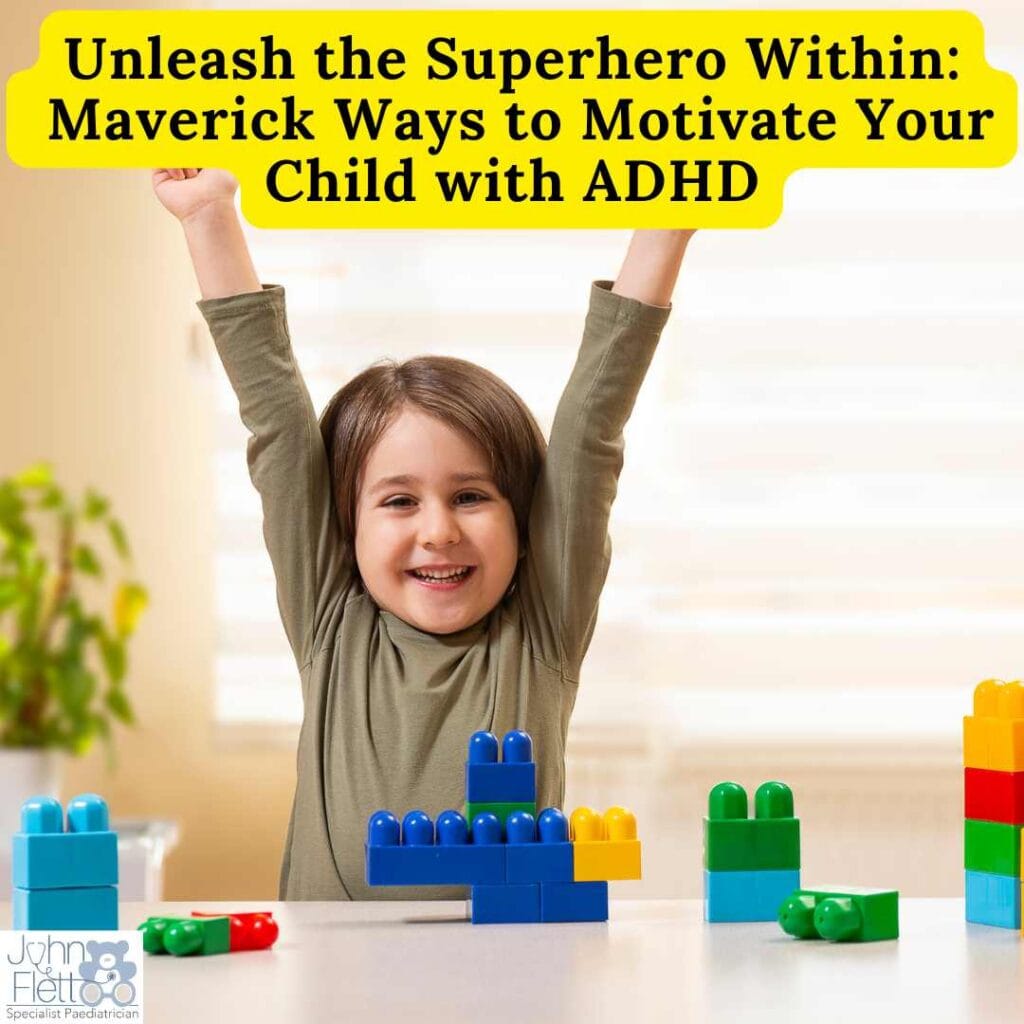Unleash the Superhero Within: Maverick Ways to Motivate Your Child with ADHD

Are you tired of the usual advice on helping your child with ADHD? You know—the checklists, the quiet workspaces, and the same old motivational charts that seem to work for about five minutes. It’s time to rip up the rulebook and go rogue. This article dives headfirst into out-of-the-box methods you may never have considered, but that just might rock your world—and your child’s!
1. Forget Sitting Still: Encourage Movement (Yes, During Homework!)
Whoever decided learning and sitting still had to go hand in hand must have missed the memo about how active brains thrive. If your child wants to hop, skip, or dance around the room while reciting multiplication tables—let them! Movement can boost focus, ignite creativity, and stave off the dreaded boredom. Setting them free to wiggle might feel wild, but you’ll be amazed at what they can achieve once they’re on the move.
How to Try It
- Have them do spelling drills while hopping on one foot.
- Put a mini trampoline in the living room for “bouncing revision.”
- Ditch the chair—use an exercise ball or let them stand while working.
2. Embrace the Chaos: Let Them Multi-Task
Traditional wisdom says one thing at a time. But many children with ADHD actually perform better when juggling multiple small tasks. This might look bananas to onlookers, yet it can be a secret superpower. For some, having a puzzle app open while doing homework stops their brain from drifting off.
How to Try It
- Alternate a few minutes of drawing or doodling with a few minutes of coursework.
- Let them listen to music or wear headphones with nature sounds while studying.
- Use voice notes: They can talk through ideas or read out loud to keep them engaged.
3. Insist on Creativity Over Correctness
We’ve all been guilty of correcting spelling mid-story and crushing the creative spark. Instead, give your child free rein to express themselves—spelling errors and all. If they’re excited to write a crazy fantasy adventure, let them! The sense of accomplishment they’ll feel is far more important than perfect punctuation right now.
How to Try It
- Let them create a mini graphic novel instead of a traditional book report.
- Encourage off-the-wall “inventions” for science projects—they can refine ideas later.
- Start a family blog or vlog where perfection is replaced by imagination.
4. Get Noisy, Get Messy, Get Real
Forget the pristine study corner. For some children, background noise or a colourful, bustling environment is oddly calming. Let them work at the kitchen table while you cook, or in the garden with birds chirping—it might just keep their brain stimulated enough to focus.
How to Try It
- Set up a cosy reading nook with funky lighting and a blanket fort vibe.
- Organise a “messy science lab” in the garage—where playing with experiments is the main event.
- Encourage them to learn through real-life tasks like baking (measuring ingredients is maths in action!).
5. Flip the Script on Rewards and Consequences
Yes, short-term rewards can help, but let’s go further. Instead of doling out the same sticker or snack each time, mix it up! Surprise them with an impromptu “let’s go out for ice cream” when they manage to concentrate on a reading assignment for 15 minutes straight.
How to Try It
- Use a “mystery reward box” full of random items or treats they can pick from.
- Occasionally reward the effort even if the final result wasn’t perfect.
- Involve your child in choosing and creating their own rewards—empower them.
6. Seize the Teachable Moments
Formal lessons don’t have to happen at a desk. If your child is engrossed in building Lego towers, sneak in a conversation about geometry, engineering, or maths. They’ll barely notice they’re learning because they’re already engaged in the activity.
How to Try It
- Gardening can become a science lesson on plant biology and ecosystems.
- Cooking offers opportunities to talk about fractions, chemistry, and nutrition.
- Watching cartoons together can lead to discussions about storytelling, art, or even historical references.
7. Show Them the Big Picture
Children with ADHD can be fiercely passionate—if they see the point in something. Show them how schoolwork links to their biggest dreams. If they love animals, talk about how maths could help them become a successful vet or run an animal sanctuary one day. Tying learning to a personal aspiration can be a powerful motivator.
How to Try It
- Make vision boards together with pictures and statements about their goals.
- Encourage them to research people who turned ADHD into an advantage—many inventors, entrepreneurs, and artists had ADHD.
- Offer real-life context: “Knowing these maths skills could help you track your progress when building the tallest treehouse!”
8. Relax Your Grip
Yes, you want the best for your child, but trying to micromanage every step can lead to meltdowns—for both of you. Loosening control doesn’t mean you don’t care; it shows you trust them to find their own path. Give them space, let them choose the order they do tasks in, or decide how they’ll spend their free time.
How to Try It
- Negotiate deadlines instead of dictating them.
- Listen to their input and admit when your strategy isn’t working.
- Stay involved but let them lead the way—control in small doses empowers them.
Final Provocation: Embrace Imperfection and Let Them Fly
The world often tells children with ADHD to sit down, be quiet, and follow the script. Let’s flip that narrative. By embracing creativity, organised chaos, and movement, you’ll discover that what seems like a weakness can become a remarkable strength. Will you need patience? Absolutely. But you’ll also witness breakthroughs that traditional methods might never achieve.
So go on, break a few rules—watch your child soar, and join them on the journey.

Responses